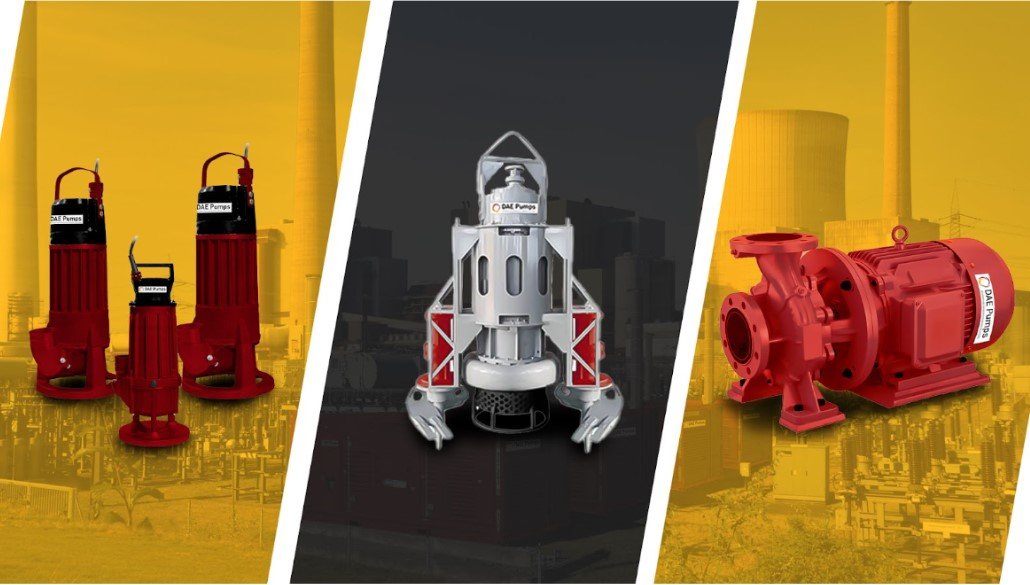Tech
How Industrial Pumps Drive Efficiency in Large-Scale Operations

In large-scale industries, operational efficiency depends on the seamless movement of fluids and semi-solids. Whether in mining, oil and gas, water treatment, or construction, the constant flow of materials is essential to keeping systems running smoothly. At the core of this movement are industrial pumps—machines that play a vital role in productivity and performance.
From transporting abrasive slurry to managing wastewater or chemicals, industrial pumps are key to industrial fluid handling across multiple sectors. Their strength lies in their ability to handle high volumes, high pressures, and demanding operating environments without significant downtime.
What Makes Industrial Pumps Critical
Unlike standard pump systems, industrial pumps are engineered to move a wide range of materials under tough conditions. These materials may include corrosive chemicals, thick slurries, or large volumes of wastewater. Because of their adaptability, they are used for both basic water circulation and more specialized processes like slurry transport, cooling, or chemical dosing.
Modern operations also demand sustainability and reliability. That’s where heavy-duty pumping systems come in. These pumps are designed not only to endure heavy wear but also to reduce energy consumption and minimize unplanned shutdowns—two key factors in boosting long-term efficiency.
Applications Across Key Industries
Mining
In mining, pumps are used for tailings transport, slurry handling, and dewatering. These systems require heavy-duty pumping systems that can move abrasive mixtures over long distances without excessive wear. Failures in such settings can cause costly production delays and environmental hazards.
Oil & Gas
Industrial fluid handling in the oil and gas industry often involves the transfer of drilling fluids, chemicals, and wastewater. Pumps must maintain flow consistency despite fluctuating temperatures and pressures. This ensures continuous operations in environments where even small delays can be expensive.
Wastewater Treatment
Efficient fluid transfer solutions are central to wastewater management. Industrial pumps handle everything from raw sewage to treated effluent, ensuring compliance with environmental regulations. Pumps used in these systems must be resistant to clogging and designed for continuous duty.
DAE Pumps: Supporting Industrial-Scale Solutions
DAE Pumps is a trusted name in delivering reliable pumping systems for a variety of industries. Their product range includes submersible, centrifugal, and slurry pumps designed for both high-volume and high-pressure needs.
DAE Pumps’ focus on heavy-duty pumping systems helps large companies reduce maintenance costs, extend equipment life, and improve energy efficiency. Their products are built for real-world challenges, whether it’s moving thick mining slurry or handling corrosive chemical waste in industrial plants.
Through engineered solutions and system integration, DAE Pumps ensures its customers get more than just a pump—they get a tool designed to enhance overall process performance.
Improving Efficiency Through Smarter Pumping
Efficiency in large-scale operations is no longer just about speed; it’s about doing more with less. High-performance fluid transfer solutions help companies conserve energy, reduce waste, and meet environmental standards. For example, variable speed drives (VSDs) on pumps allow operators to adjust flow rates based on demand, reducing unnecessary energy use.
Additionally, modern materials and smart system design allow pumps to last longer under pressure, particularly in applications involving high temperatures, abrasives, or corrosive fluids. For operations that run around the clock, this kind of durability makes a significant difference.
By upgrading to advanced industrial fluid handling systems, companies also gain better monitoring capabilities. Sensors and control systems can track flow rate, pressure, and temperature in real time, helping to predict maintenance needs and avoid unexpected failures.
The Long-Term Impact on Operations
Choosing the right pump system has a ripple effect across a facility. Efficient industrial pumps don’t just support fluid movement—they support every other process that depends on it. Whether it’s cooling equipment, feeding production lines, or clearing waste, pumps directly affect uptime and cost control.
When integrated correctly, heavy-duty pumping systems can significantly reduce the strain on labor and infrastructure. Automation further enhances this impact, allowing a smaller workforce to manage larger systems with fewer errors.
In turn, companies benefit from better resource allocation, improved safety, and streamlined operations—all while meeting the growing demands of global production and sustainability standards.
Conclusion
In large-scale industries, every system relies on the efficient and dependable movement of fluids. Industrial pumps are a central part of this puzzle, ensuring that materials flow where they need to—quickly, safely, and with minimal interruption.
With the help of brands like DAE Pumps, companies can access advanced fluid transfer solutions and industrial fluid handling technologies that align with modern demands for durability, efficiency, and operational control.
As industries grow more complex and competitive, pumps will continue to play a quiet but crucial role in keeping everything moving forward.
Check out: Know the Importance of Maintenance for Industrial Equipment
-

 Entertainment4 weeks ago
Entertainment4 weeks ago123Movies Alternatives: 13 Best Streaming Sites in 2026
-

 Entertainment1 month ago
Entertainment1 month ago13 Free FMovies Alternatives to Watch Movies Online in 2026
-

 Entertainment1 month ago
Entertainment1 month ago13 Flixtor Alternatives to Stream Free Movies [2026]
-

 Entertainment1 month ago
Entertainment1 month agoGoMovies is Down? Here are the 11 Best Alternatives





